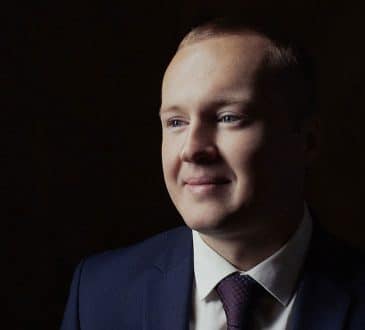Here’s What No One Tells You About Types Of Cerebral Palsy

A birth injury that affects the brain is much harder to accept than any other birth injuries. But sadly, many children are born with brain damage caused by medical negligence. Some of the cases reported with cerebral palsy are due to genetic disorders or other physical complications. But the condition due to a doctor’s wrong decision can be an injustice. The families can consult a medical malpractice lawyer for claiming compensation due to medical errors.
Cerebral Palsy and its types:
Cerebral palsy is a brain injury that causes the child in coordinating his milestones and movements. Cerebral palsy is caused by many factors like genetic disorder, complications in pregnancy, infections during pregnancy, or due to medical negligence.
There are four types of cerebral palsy. Each of which is classified based on movement factor and the severity of the brain injury. Let us have a look at the types of CP and how they affect your child.
- Spastic CP
- Athetoid CP
- Ataxic CP
- Mixed CP
Apart from these significant CP types, there are other cerebral palsy types like Diplegic CP, Dystonic CP, Epidural Hematoma CP, Grade 1 IVH CP, Hemiplegic CP, Hypertonic CP, Hypotonic CP, Periventricular Leukomalacia CP, Tetraplegic CP, and Subdural Hematoma CP.
Knowing about the different types of CP can help improve your understanding and ensure which therapy best suits your little one.
Spastic (Pyramidal) Cerebral Palsy
One of the most common forms of CP seen in children is the spastic cerebral palsy. A child with spastic CP will have difficulty in walking or crossing the knees. Spastic C{P causes the muscles to stiffen, which in turn results in paralysis or muscle weakness. For some people, spastic CP affects the entire body while for others, it just affects one side of the body.
Athetoid Cerebral Palsy
Compared to spastic CP, athetoid CP is not so common, and it affects the rigidity in the movement. A person with athetoid CP will have involuntary jerky movements of the hand, feet, legs or arms.
As the facial muscles will be overactive, there are chances that a child with Athetoid CP may drool or make faces. Athetoid CP is also known as Dyskinetic CP. The good thing is, a child with athetoid CP will not have mental problems.
Ataxic Cerebral Palsy
Ataxic CP is different from other types of CP as it affects the balance and coordination of a person. A person with ataxic CP may show difficulties involuntarily moving. The symptoms of ataxic CP include speech problems, tremor, abnormal walking with feet spread apart.
If a child is suffering from ataxic CP, he/she will have a shaking experience along with Ataxic Xa problems in depth perception. A child with ataxic CP can be diagnosed only when he turns 18 months.
Mixed Cerebral Palsy
Last, but not the least, comes the mixed CP. Mixed cerebral palsy is one of the worst brain injuries as it might have symptoms of more than one type of the above CPs. To be precise, a person with mixed CP will have difficulty in both walking and speaking.
He/she will find it challenging to balance and coordinate. 10% of the cases have been reported so far, which makes it quite relieving to know. For better diagnosis and treatment, parents should approach a CP specialist if their child has mixed CP.
If your child faces any of these types of cerebral palsy due to the pregnancy complications or medical mistake, you can approach a birth-injury lawyer. Depending on the circumstances and substantial evidence, the hospital or the doctor will be held liable, and a case-file will be charged.
Have you read?
# Global Passport Ranking, 2019.
# The World’s Top 100 Most Successful Unicorns, 2019.
# GDP Rankings Of The World’s Largest Economies, 2019.
# Most Expensive Countries In The World To Live In, 2019.
Bring the best of the CEOWORLD magazine's global journalism to audiences in the United States and around the world. - Add CEOWORLD magazine to your Google News feed.
Follow CEOWORLD magazine headlines on: Google News, LinkedIn, Twitter, and Facebook.
Copyright 2025 The CEOWORLD magazine. All rights reserved. This material (and any extract from it) must not be copied, redistributed or placed on any website, without CEOWORLD magazine' prior written consent. For media queries, please contact: info@ceoworld.biz








